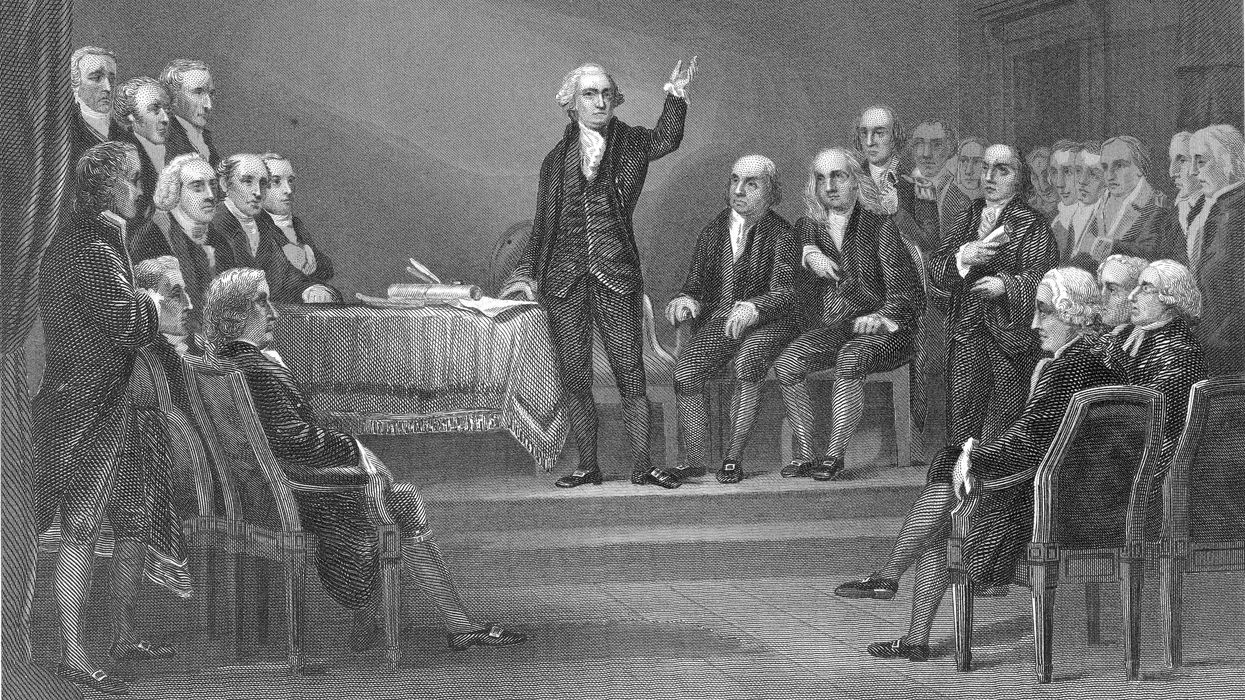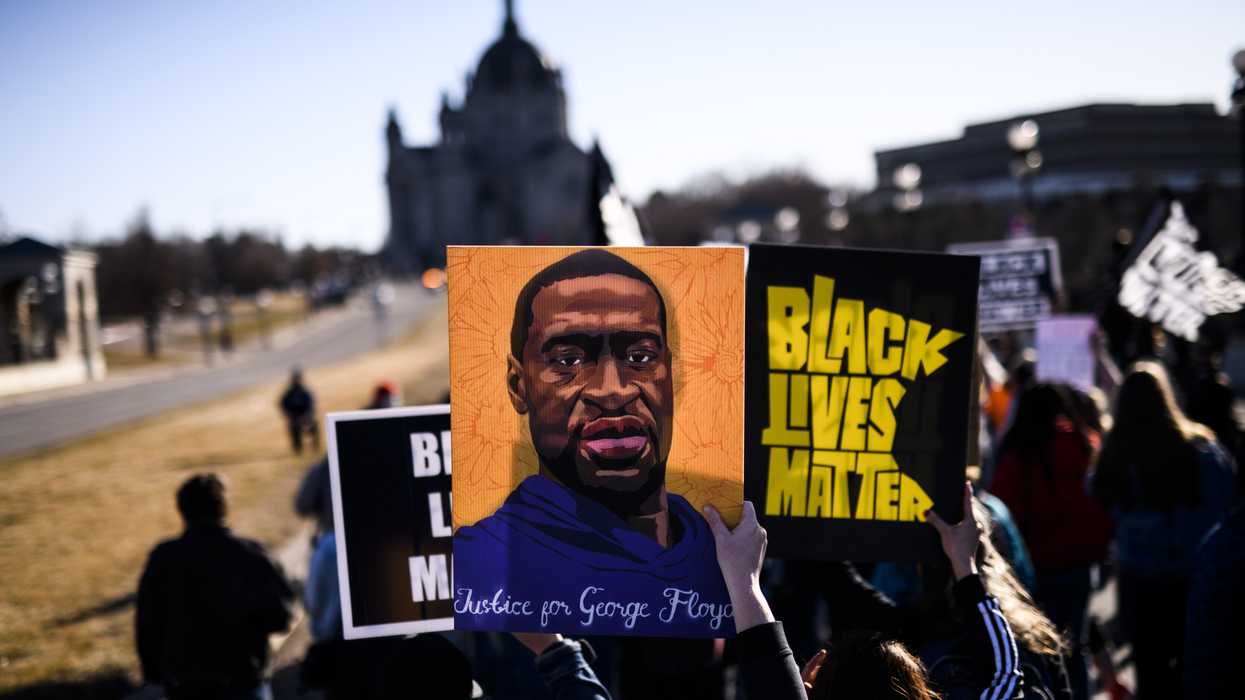Sturner is the author of “ Fairness Matters,” and managing partner of Entourage Effect Capital.
This is the third entry in the “Fairness Matters” series, examining structural problems with the current political systems, critical policies issues that are going unaddressed and the state of the 2024 election.
The Preamble to the Constitution reads:
"We the People of the United States, in Order to form a more perfect Union, establish Justice, insure domestic Tranquility, provide for the common defense, promote the general Welfare, and secure the Blessings of Liberty to ourselves and our Posterity, do ordain and establish this Constitution for the United States of America."
What troubles me deeply about the politics industry today is that it feels like we have lost our grasp on those immortal words.
Back in June 2023, on Fairness Matters, I wrote:
“ We are getting dangerously close to ending the American experiment. The United States of America was founded — not to unify people around ethnicity, religion or culture — but as a bold experiment designed to create a society governed by ordinary citizens, one that gives full expression to the ideals of liberty, justice and opportunity for all. In its time it was a truly audacious idea. … Sadly, they couldn’t have predicted the modern world we’re living in and never anticipated that their Constitution would still be governing our lives.
Writing from Paris just after the French Revolution broke out, Thomas Jefferson argued to James Madison, the primary author of the Constitution, that the Constitution should expire after 19 years and must be renewed if it is not to become “ an act of force and not of right.” That sentiment was echoed at the Constitutional Convention by George Washingto who said: "I do not expect the Constitution to last for more than 20 years."
The Constitution derives its power from the majority consent of the governed. So, at the end of the day, if our representatives choose to ignore the Constitution or act in defiance of it, our only recourse is to hold them accountable. But what happens when one branch of government acts and there is no accountability?
Constitutional checks and balances
Back in 2015, Kevin Kosar, a conservative writer, published an interesting article titled “ Why does Congress diminish itself.” He wrote:
“The Founding Fathers set up Congress as the most powerful of the three branches. Per the U.S. Constitution, Congress possesses “ all legislative power.” This includes the most fundamental tools of governance and state-building, such as laying and collecting taxes, coining money and regulating its value and deciding what persons may join the nation as citizens. …
The Founders erected a remarkable system of government. Ambition must be made to counteract ambition, in Madison’s famous dictum, and each branch would defend its powers from encroachment. Unfortunately, Congress has not worked that way for at least a half-century. In the pursuit of other goals, Congress has weakened itself as an institution and representative government as a whole.”
But it’s not just Congress that has weakened itself. In writing about the Constitutionin June 2023, I explained the brilliance of our Founding Fathers in how they structured our system of government:
"To prevent any one part of the government from becoming too powerful, they created three co-equal branches of government (including a bicameral legislature) designed to work independently and in cooperation to prevent abuse of power.
"But if two of those branches, say the executive and judicial, worked in concert with one another they can absolutely work around, and even reinterpret, the Constitution. Elected representatives in the legislative branch would be virtually powerless to stop it.
"This is one of the most interesting (and important) byproducts of the Trump presidency. It has exposed serious flaws in the checks and balances that many of us thought existed as “law” when in fact it was only accepted practice and not actually enforceable."
When I wrote those words, I was concerned about the “unitary executive theory,” an idea advanced by conservative constitutional law experts that holds that the president of the United States possesses the power to control the entire executive branch regardless of legislative action. I could never have fathomed that the judicial branch would conspire to confer on the president such authority.
Sadly, on July 1, 2024, when the Supreme Court decided Trump v. United States went even further. The court ruled that Donald Trump cannot be prosecuted for actions that were within his constitutional powers as president. It was a landmark decision recognizing for the first time (and without any basis in the Constitution) any form of presidential immunity from prosecution.
If you’re asking yourself, "Where’s the conspiracy?" consider what Heather Cox Richardson wrote in the July 1 edition of “ Letters from an American.” In it, she exposed the fact that the very justices who conferred presidential immunity on the president had lied during their confirmation hearings:
At his confirmation hearing in 2005, now-Chief Justice John Roberts said: “I believe that no one is above the law under our system and that includes the president. The president is fully bound by the law, the Constitution, and statutes.”
In his 2006 confirmation hearings, Samuel Alito said: “There is nothing that is more important for our republic than the rule of law. No person in this country, no matter how high or powerful, is above the law.”
And in 2018, Brett Kavanaugh told the Senate: No one’s above the law in the United States, that’s a foundational principle…. We’re all equal before the law…. The foundation of our Constitution was that…the presidency would not be a monarchy…. [T]he president is not above the law, no one is above the law.”
Sadly, these justices have set the stage to tear down one of the most important principles that has protected our democratic republic for the past 250 years — the idea that no one is above the law.
As I wrote in “ It’s never too late to act,” especially after the attempt on former Trump’s life, we need to stop allowing political dogma to divide us. We must come together and work, as our Founding Fathers did, to find a common vision for the future that allows us to work towards a more perfect union.




















